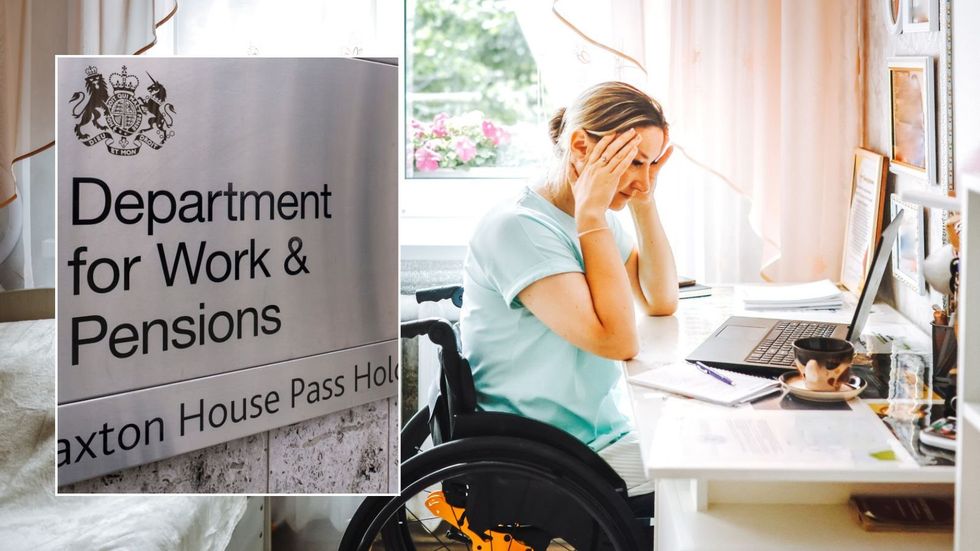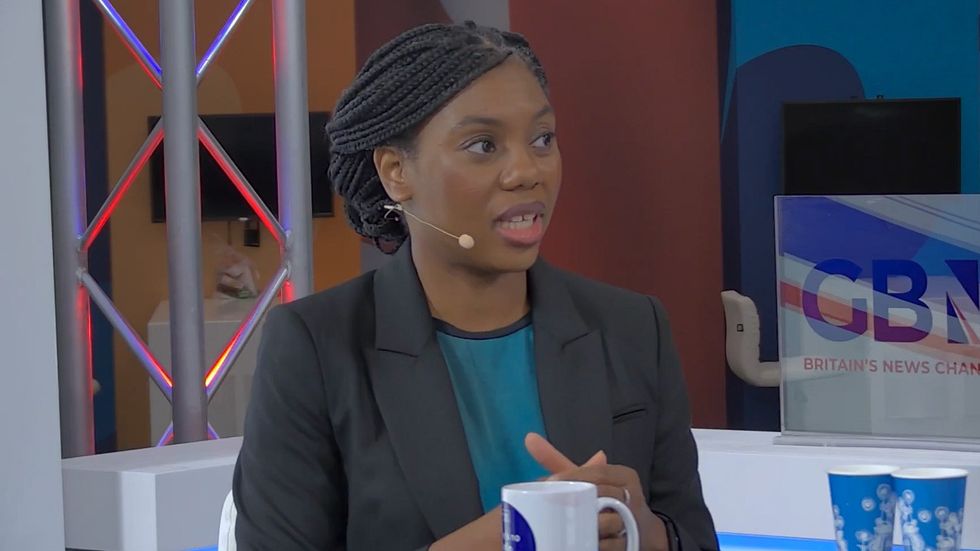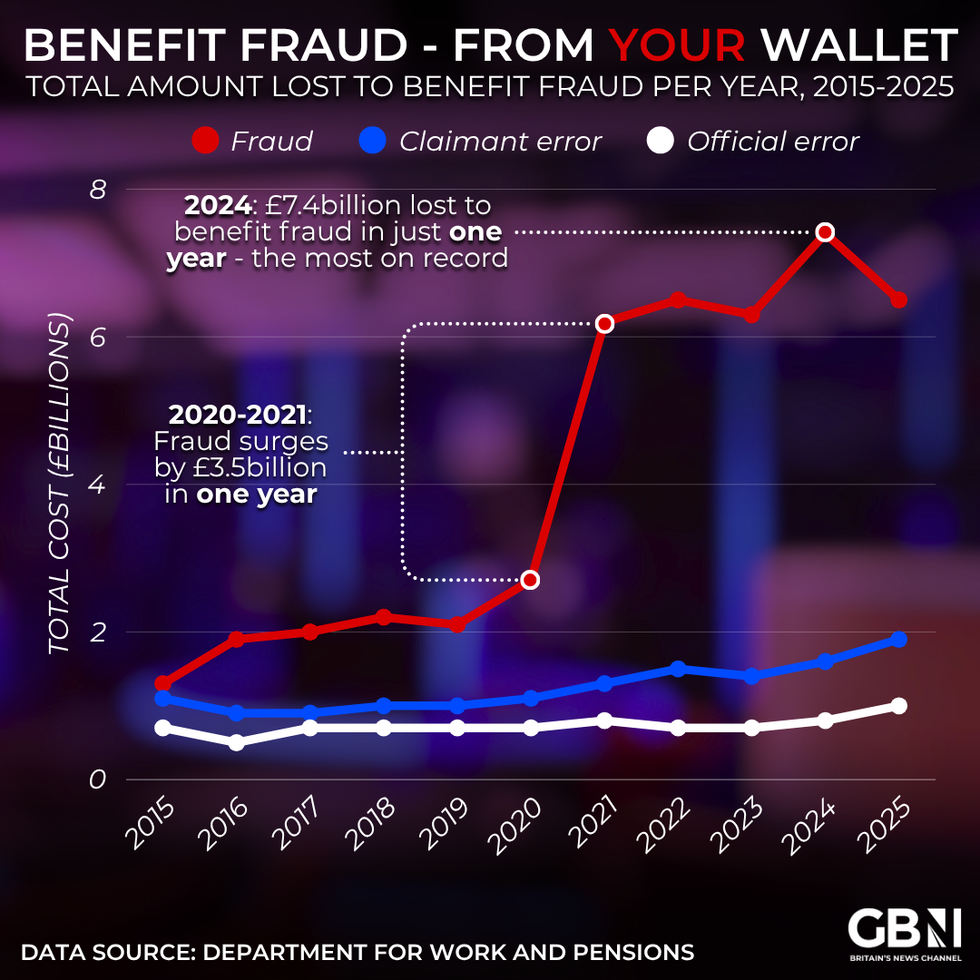DWP crisis continues as 'for every disabled Briton in work, another leaves' amid calls to cut PIP

Cricketer Shaun Rigby tells GB News that the DWP have branded him 'not disabled enough' |
GB NEWS

Disability benefit spending is the firing line with the Government facing calls to get more working-age Britons into work
Don't Miss
Most Read
Financial analysts are sounding the alarm over the benefit system as "for every disabled person moving into work, another is leaving", according to shock new figures from the Department for Work and Pensions (DWP).
Progress in reducing workplace inequality for disabled individuals has ground to a halt amid calls to implement drastic cuts to benefits such as Personal Independence Payment (PIP), The Work Foundation has warned.
Just 52.8 per cent of disabled people currently hold jobs, a figure unchanged since 2019, while the employment gap between disabled and non-disabled workers has actually grown from 28.8 per cent to 29.7 per cent.
Disability benefits spending is forecast to be £39.1billion for 2023-24, based on estimates from the Office for Budget Responsibility (OBR). The fiscal watchdog forecasts this will increase to £58.1billion in 2028-29.

New DWP figures have found that 'for every disabled person in work, another leaves'
|GETTY
This would represent around four per cent of total public spending, and two per cent of gross domestic product (GDP).. Chancellor Rachel Reeves has signaled Labour will look into reviewing public expenditure on disability benefits once again.
Last year, Prime Minister Keir Starmer's Government was forced to U-turn on cuts to PIP due to a rebellion by backbench MPs which has increased pressure on the Chancellor to find other ways to balance the books.
Last week, Ms Reeves confirmed plans to cut £1billion from the Motability budget following reports that claimants with anxiety were accessing luxury cars on the public purse.
In recent months, both Reform leader Nigel Farage and Conservative leader Kemi Badeboch have pledged to reduce disability benefit spending if they get the keys to Number 10.

Kemi Badenoch has pledged to cut disability benefits
| GB News"Disabled people continue to face stark and significant disadvantages in the labour market," said Ben Harrison, the director of the Work Foundation.
With nearly a quarter of working-age Britons now classified as disabled, Mr Harrison warned that "employers are missing out on accessing the talent and experience of millions of people".
"Greater flexibility is a key enabler for disabled people to progress in their careers," Mr Harrison noted. "The recent lack of progress indicates that punitive policies that push disabled people into ‘any job’ are unlikely to be effective.
"Today’s figures suggest that for every disabled person moving into work, another in employment is leaving. In 2024, 420,000 workless disabled people moved into work while 420,000 disabled workers moved out of work.”
He emphasised the disconnect between employee needs and workplace reality: "Many disabled people still contend with inflexible employers, and we need Government and employers to make access to secure and flexible work standard practice to get and keep Britain working."
Analysts believe the crisis extends particularly to younger demographics, where disability intersects with educational and employment exclusion.
Aman Navani, the research and policy analyst at the Work Foundation, cited that "nearly half of young people not in employment, education or training are classed as disabled (45.8 per cent) a rise of 24.3 percentage points since 2013/14."
Currently, one in eight individuals aged 16-24 falls outside education, employment or training pathways, marking an increase since the pandemic.
"In order to address this worrying trend, policymakers must provide enhanced support to find work or training but recognise that additional health support in particular mental health support will be critical for young people to enter and remain in work," Mr Navani stated.
While MPs in Westminster appear to be rallying in favour of disability benefit cuts and reform, charities are urging policymakers to be cautious over any changes to the existing DWP regime.
 Benefit fraud - from your wallet: Total amount lost to benefit fraud per year | GB NEWS
Benefit fraud - from your wallet: Total amount lost to benefit fraud per year | GB NEWSDavid Southgate, the policy manager at disability equality charity Scope, said: "Cutting disability benefits would have disastrous consequences for disabled people.
"Life costs a lot more when you're disabled, on average by over £1,000 every month[1]. Benefits like PIP are a lifeline to help pay for vital equipment, support at home, or enough heating to stay well. We're hearing constantly from people who already can't afford these, so taking further support away would be devastating.
"The system does need reforming, but the government needs to work with disabled people to fix our broken benefits system."
As part of the Government's review into disability benefits, ministers have appointed Sir Stephen Timms to carry out a review into the assessment process for PIP.
This review is expected to take place over the course of the next year, after which the Government will implement any policy recommendations from the Timms Review.
More From GB News










